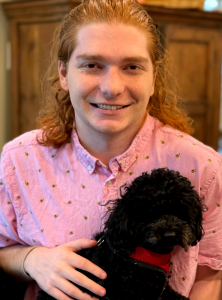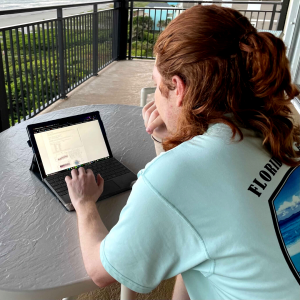Max is going into his fourth year of undergraduate studies at the University of Toronto. He is specializing in physics & astrophysics. Max is originally from St. Augustine, Florida, and moved to Toronto for school in 2018. Working with supervisor Dr. Cameron Van Eck, he is working on the data pipeline for the “Polarisation Sky Survey of the Universe’s Magnetism” (POSSUM).
What made you decide to participate in SURP?
The idea of exploring the unknown, improving our understanding of the cosmos, and simultaneously adding to the collective knowledge of humankind is described by many as a noble cause – I want to do this because this is what I live for, and I think it is fun! SURP provides one of the best ways for undergraduates to do real astrophysics research.
What is your favourite thing about SURP?
The best thing about being a SURP student is the mentorship and soft skills offered by the program. Working with Dr. Cameron Van Eck has been amazing, and I am learning so much about how to be a professional astronomer.
Can you tell us about your research project?
My project, under the supervision of Dr. Cameron Van Eck and Dr. Bryan Gaensler, is working on a part of the data pipeline for the “Polarisation Sky Survey of the Universe’s Magnetism” (POSSUM). The sky survey will substantially increase what we know about cosmic magnetism, by a factor of about 20x. The 1D data pipeline, when complete, will take in telescope data and then export Faraday Rotation Measures (RM), information about the radio source, and uncertainty estimates to a catalog. My work mostly pertains to testing that the data pipeline works as expected, to remove errors or bugs that may affect future astronomy research.
Can you explain how SURP has perhaps been different from your undergrad work?
SURP is extremely liberating. It’s the difference between doing a fun science fair project in high school and doing normal high school classes. In SURP, the path forward is not defined and there are no answers that you can google. SURP is substantially more enjoyable than lectures, and it also has more python coding.
What are your plans for the future?
My dream is to live the adventurous life of a scientific researcher. With regards to my career, I would like to earn a PhD related to astrophysics and become a research professor. As of now, I am uncertain which subject I want to study in graduate school – as all astrophysics is incredibly stimulating, it’s hard to narrow down my interest. Along the way, I would like to serve in the Peace Corps (teaching high school math and science for two years abroad), study for an extended period of time in Australia, Europe and be on at least one Antarctic research mission.
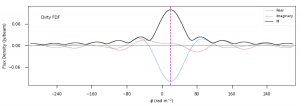
A key part of the data pipeline is measuring the Faraday Rotation or simple RM of a radio source. This is a example output from the RM-Tools package which is an integral part of the pipeline. Credit: Max Fine.
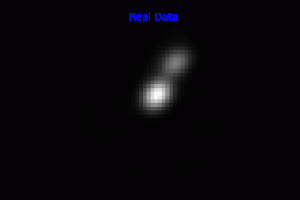
Simple comparison of real and simulated radio sources, the simulated sources are then ran into the data pipeline for testing (Click to play). Credit: Max Fine.
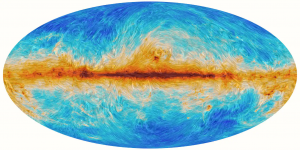
The magnetic field of the Milky Way galaxy by the Planck satellite. Credit: ESA and the Planck Collaboration.

